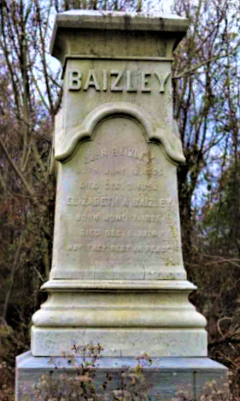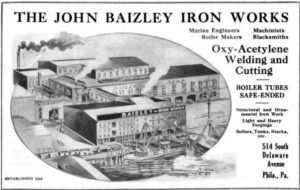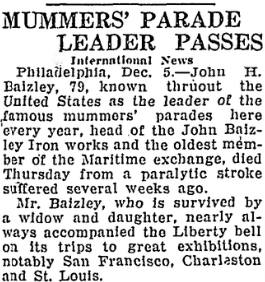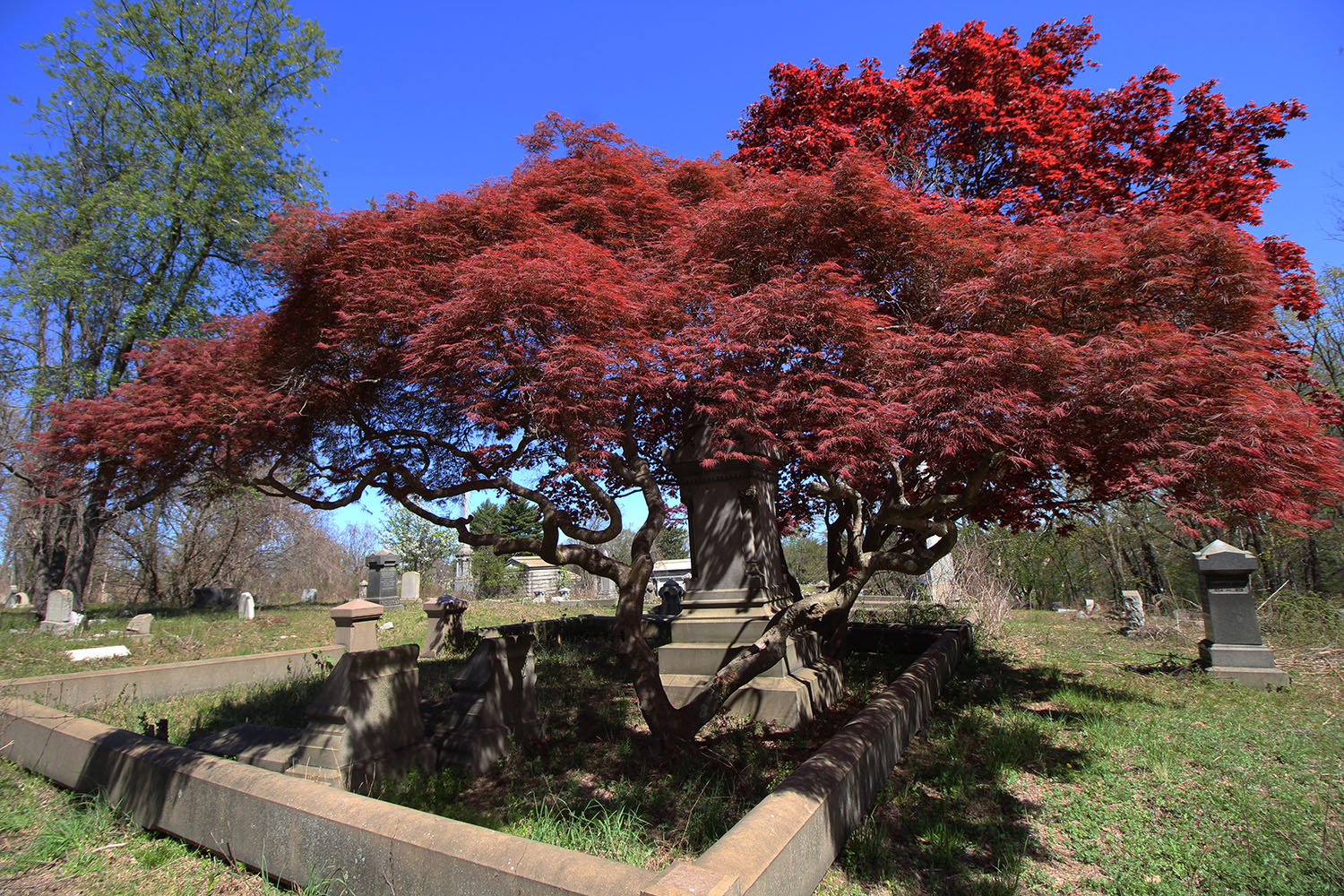Title: State militia musician, Civil War; iron works owner, "shipsmith"
Birthdate: 1824
Death Date: December 3, 1898
Plot Location: Section 42, Lot 55

John’s parents were named John and Susan but nothing else is known of his early years until he married Elizabeth Massie around 1844 and had five boys. He may have begun his career apprenticing as a blacksmith, since he made metalworking his singular mission in life.
There was one other side of John, however, that was only revealed briefly during the Civil War. Pennsylvania mobilized its own state militia when it was feared that rebel troops might invade the state. John joined a hastily-organized regiment, the 40th Militia Infantry on July 2, 1863 when the Battle of Gettysburg had already begun. He signed up with the rank of Musician, but his company was never called since the battle ended the next day in a Union victory, and the militia disbanded in August. Whatever musical talent he possessed was never identified in any other documentation of his life.
What has been well documented is his success as an entrepreneur, which started before the war began. He founded the John Baizley Iron Works in 1860, and was involved in anything having to do with metal from making boilers to fire escapes, to forgings, welding, and repairs. With the debut of iron-clad ships during the war, the company specialized in iron plating and the installation and repair of steam engines.
John often identified himself in the city directories as a “shipsmith,” as new economic growth resulted from this blending of the maritime and iron industries. John placed this advertisement in a city directory to show how the shops were conveniently located on the waterfront.

He lived a long life and prospered, leaving an estate appraised at $3.3 million in today’s dollars. The company continued long after his death, thanks to the two oldest sons, John Henry and Rudolph, who operated it as a family business until John Henry died in 1924. Rudolph was listed as President of the firm in city directories as early as 1884, continuing until his death in 1918.
John Henry had two other interests worth remembering. One was holding an elected seat on Philadelphia’s Common Council for over 20 years (when the city government had two chambers, Common Council and Select Council). The other was being chair of the joint council committee on the New Year’s celebration, ensuring funds were in the  budget for the annual Mummers’ Parade since its founding in 1901. In fact, as Grand Marshall, he rode a white horse at the head of the line every year for more than 20 years. His obituary, shown here, also mentions him traveling with the Liberty Bell.
budget for the annual Mummers’ Parade since its founding in 1901. In fact, as Grand Marshall, he rode a white horse at the head of the line every year for more than 20 years. His obituary, shown here, also mentions him traveling with the Liberty Bell.
Of John’s other three sons, the youngest was Davis, who died at age 17 of spinal meningitis. His brother Thomas was a sailmaker for a dozen years before joining the iron works as a clerk. He died at age 49.(Ironically, he had a son named Davis who died at age 9 of spinal meningitis.) The other son was Samuel, who was also a clerk for his father’s business. He was also elected to the Common Council and served for nearly 10 years, until he died at age 40 of tuberculosis.

Support the Friends of Mount Moriah
Help us in our mission to restore and maintain the beautiful Mount Moriah Cemetery by donating to our cause or volunteering at one of our clean-up events.

